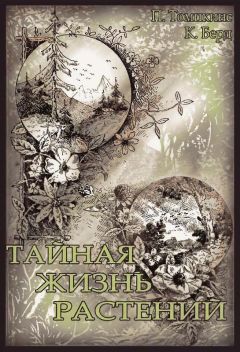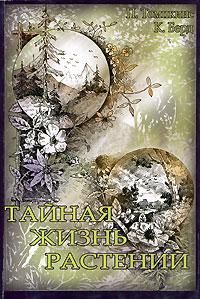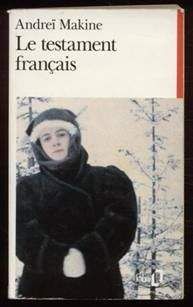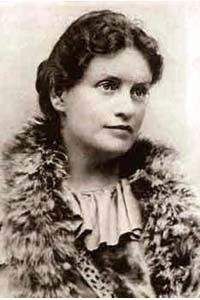Acharya Jagadis Chandra Bose. (Transactions of the Bose Research Institute, Calcutta, volume 22.) Calcutta: Bose Institute, 1958.
Acres USA, a Voice for Eco-Agriculture. (Monthly newspaper.) Raytown, Mo.
Adam, Michel. La Vie et les Ondes; Toeuvre de Georges Lakhovsky. Paris: E. Chiron, 1936.
Adamenko, Viktor. “Living Detectors (on the Experiments of K. Bakster),” Tekhnika Molodezhi, no. 8, 1970, pp. 60–62 (in Russian).
Adams, George, and Olive Whicher. The Living Plant and the Science of Physical and Ethereal Spaces. Clent, Worcestershire, England. Goethean Science Foundation, 1949.
Albus, Harry. The Peanut Man. Grand Rapids, Michigan: Win B. Eerdman Pub. Co., 1948.
Albrecht, William A. Soil Fertility and Animal Health. Webster City, Iowa, 1958.
_____. Soil Reaction (pH) and Balanced Plant Nutrition. Columbia, Missouri, 1967.
Alder, Vera Stanley. The Secret of the Atomic Age. London: Rider, 1958–1972.
Aldini, Giovanni. Orazione di Luigi Galvani. Bologna: Monti, 1888.
Allen, Charles L. The Sexual Relations of Plants. New York, 1886.
Andrews, Donald Hatch. The Symphony of Life Lee's Summit, Missouri: Unity Books, 1967.
Applewhite, P. B. “Behavioral Plasticity in the Sensitive Plant, Mimosa,” Behavioral Biology, vol. 7, Feb. 1972, pp. 47–53.
Arditti, Joseph, and Dunn, Arnold. Experimental Plant Physiology: Experiments in Cellular and Plant Physiology. New York: Holt, Rinehart and Winston, 1969.
Audus, L. J. “Magnetotropism: A New Plant Growth Response,” Nature, Jan. 16, 1960.
Bach, Edward. Heal Thyself. Ashingdon, Rochford, Essex, England: C. W. Daniel Co. Ltd.
_____. The Twelve Healers and Other Remedies. Ashingdon, Rochford, Essex, England: C. W Daniel Co. Ltd., 1933.
Backster, Cleve. “Evidence of a Primary Perception in Plant Life,” International journal of Parapsychology, vol. 10, no. 4, Winter 1968, pp. 329–348.
_____. “Evidence of a Primary Perception at Cellular Level in Plant and Animal Life,” unpublished. Backster Research Foundation, Inc., 1973, 3 pp.
Bacon, Thorn. “The Man who Reads Nature's Secret Signals,” National Wildlife, vol. 7, no. 2, Feb.-Mar. 1969, pp. 4–8.
Bagnall, Oscar. The Origin and Properties of the Human Aura. New York: University Books, 1970.
Baitulin, I. O., Inyushin, V. М., and Scheglov, U. V. “On the Question of Electrobioluminescence in Embryo Roots,” Bioenergetic Questions — and Some Answers, Alma Ata, 1968 (in Russian).
Balfour, Lady Eve В. The Living Soil. London: Faber & Faber, 1943.
Balzer, Georg. Goethe als Gartenfreund. Munich: Bruckmann, 1966.
Barnothy, Madeleine F. (ed.). Biological Effects of Magnetic Fields. New York: Plenum Press, 1964.
Barr, Sir James (ed.). Abram's Methods of Diagnosis and Treatment. London: W. Heinemann, 1925.
Basu, S. N. Jagadis Chandra Bose. New Delhi: National Book Trust, 1970.
Beaty, John Yocum. Luther Burbank, Plant Magician. New York: J. Messner, Inc, 1943.
Bentley, Lmna. Plants That Eat Animals. London: Bodley Head, 1967.
Bertholon, M. L'Abbe. De l'Electricite des Vegetaux. Alyon, 1783.
Bertrand, Didier. Recherches sur le Vanadium dans les Sols et dans les Plantes. Paris: Jouve et Cie, 1941.
Best, Connie. “The Man Who Bends Science.” … And It Is Divine. Denver, Colorado: Shri Hans Productions, May 1973.
Bhattacharya, Benoytash. Magnet Dowsing or The Magnet Study of Life. Calcutta, India: K. L. Mukhopadhyay, 1967.
“Billions of Transmitters Inside Us? An Unknown Bio-information Channel has Been Discovered: Using this ‘Wireless Telegraph/ the Cells of the Organism Transmit Danger Signals.” Sputnik, May 1973, pp. 126–130.
Bio-Dynamics (periodical). Stroudsburg, Pa.: Bio-Dynamic Farming and Gardening Association.
Bird, Christopher. “Dowsing in the USSR.” The American Dowser, Aug. 1972.
“Dowsing in the USA: History, Achievement, and Current Research.” The American Dowser, Aug. 1973.
Boadella, David. Wilhelm Reich: The Evolution of His Work. London: Vision Press, 1972.
Bock, Hieronymus. Teütsche Speiszkammer. Strassburg: W. Rihel, 1550.
Bontemps, Arna. The Story of George Washington Carver. New York: Grosset & Dunlap, 1954.
Bose, D. M. “J. C. Bose’s Plant Physiological Investigation Relating to Modern Biological Knowledge,” Transactions of the Bose Research Institute, vol. 37. Calcutta: Bose Research Institute, 1947-48.
Bose, Jagadis Chandra. Izbrannye Proizvedeniya po Razdrazhimosti Rastenii. I. I. Gunar (ed.), 2 vols. Moscow: Izdatel’stvo Nauka, 1964.
_____. “Live Movements in Plants.” Transactions of the Bose Research Institute, vols. 1–6. New York: Longmans, Green & Co., 1918–1931.
_____. Response in the Living and Non-Living. New York: Longmans, Green & Co., 1902.
_____. Plant Response as a Means of Physiological Investigation. New York: Longmans, Green & Co., 1906.
Researches in Irritability of Plants. New York: Longmans, Green & Co., 1913.
The Physiology of the Ascent of Sap. New York: Longmans, Green & Co., 1923.
_____. The Physiology of Photosynthesis. New York: Longmans, Green & Co., 1924.
_____. The Nervous Mechanism of Plants. New York: Longmans, Green & Co., 1926.
_____. Plant Autographs and Their Revelations. New York: Longmans, Green & Co., 1927.
_____. Motor Mechanisms of Plants. New York: Longmans, Green & Co., 1928.
_____. Growth and Tropic Movements of Plants. New York Longmans, Green & Co., 1929.
_____. “Awareness in Plants” Consciousness and Reality: The Human Pivot. Charles Muses and Arthur M. Young (eds). New York: Outerbridge and Lazard, Inc., 1972, pp 142–150.
Boulton, Brett. “Do Plants Think?” The Ladies' Home Journal, May, 1971.
Bovis, Andre. Pamphlets on dowsing privately printed in Nice, 1930–1945.
Bragdon, Lillian J. Luther Burbank, Nature's Helper. New York: Abingdon Press, 1959.
Brier, Robert М. “PK on a Bio-electrical System,” Journal of Parapsychology, vol. 33, no. 3, Sept 1969, pp. 187–205.
Brown, Beth. ESP with Plants and Animals A Collection of True Stories that Glow with the Power of Extrasensory Perception New York: Essandess Special Edition, 1971.
Brown, Jr., Frank A. “The Rhythmic Nature of Animals and Plants.” American Scientist, vol. 47, June 1959, p. 147.
Brunor, Nicola. La medicina e la teoria elettronica della materia. Milan: Institute editoriale scientifico, 1927.
Budlong, Ware T. Performing Plants. New York: Simon & Schuster, 1969.
Burbank, Luther. The Training of the Human Plant. New York: The Century Co., 1907.
_____. My Beliefs. New York: The Avondale Press, 1927.
_____. How Plants Are Trained to Work for Man. New York: P. F. Collier & Son, 1921.
Burbank, Luther, with Hall, Wilbur. The Harvest of the Years. Boston and New York: Houghton Mifflin, 1927.
Burr, Harold Saxton. Blueprint for Immortality The Electric Patterns of Life. London: Neville Spearman Ltd., 1972.
Camerarius, Rudolf Jakob. Über das Geschlecht der Pflanzen (De sexu plantorum epistula). Leipzig: W Engelmann, 1899.
Carson, Rachel. Silent Spring. Boston: Houghton Mifflin, 1962.
Chase, Thomas T. “The Development and Use of Electronic Systems for Monitoring Living Trees,” M.S. Thesis, Department of Electrical Engineering, University of New Hampshire, November 1972, 48 pp.
Clark, Laurence. Coming to Terms with Rudolf Steiner. Rickmansworth, Herts, England: Veracity Ventures Ltd., 1971.
Cocannouer, Joseph A. Weeds: Guardians of the Soil. New York: Devin-Adair Co., 1964.
Commoner, Barry. The Closing Circle. New York: Bantam Books, 1971.
Conrad-Martius, Hedwig. Die “Seele” der Pflanze. Breslau: Frankes Verlag, 1934.
Cremore, John Davenport. Mental Telepathy. New York: Fieldcrest Pub. Co., 1956.
Crile, George Washington. The Bipolar Theory of Living Processes. New York: Macmillan, 1926.
_____. The Phenomena of Life A Radio-Electrical Interpretation. New York: W. W. Norton, 1936.
Crow, W. В. The Occult Properties of Herbs. London: The Aquarian Press, 1969.
Culpeper, Nicholas. Culpeper's English Physician & Complete Herbal Remedies. North Hollywood, Calif.: Wilshire Book Co., 1972.
Darwin, Charles R. The Power of Movement in Plants. New York: Da Capo Press, 1966.
_____. Insectivorous Plants. London: J. Murray, 1875.
_____. The Movements and Habits of Climbing Plants. New York: D. Appleton and Co., 1876.
_____. The Variation of Animals and Plants Under Domestication. New York: D. Appleton and Co., 1896.
Davis, Albert Roy, and Bhattacharya, A. K. Magnet and Magnetic Fields. Calcutta: K. L. Mukhopadhyay, 1970.
Day, G. W. Langston, and De La Warr, George. Matter in the Making. London: Stuart, 1966.
_____. New Worlds Beyond the Atom. London: Stuart, 1956.
De Beer, Sir Gavin. Charles Darwin: Evolution by Natural Selection. Garden City, N.Y.: Doubleday, 1967.
De La Warr, George. “Do Plants Feel Emotion?” Electrotechnology, April, 1969.
_____. “Seeds Respond to Sound of Music,” News Letter, Radionic Centre Organization, Spring 1969, pp. 6–7.
De La Warr, George, and Baker, Douglas Biomagnetism. Oxford* De La Warr Laboratories, 1967.
De La Warr, Marjorie. “Thought Transference to Plants.” News Letter, Radionic Centre Organization, Autumn 1969, pp 3-11.
_____. Plant Experiments — Series 2.” News Letter, Radionic Centre Organization, Summer 1970, pp. 1-72.
Dibner, Bern. Alessandro Volta and the Electric Battery. New York: F. Watts, 1964.
_____. Galvani-Volta; A Controversy That Led to the Discovery of Useful Electricity. Norwalk, Conn. Burndy Library, 1952.
_____. Dr. William Gilbert. New York: Burndy Library, 1947.
Dixon, Royal. The Human Side of Plants. New York: Frederick A. Stokes Co., 1914.
Dixon, Royal, and Brayton, Eddy. Personality of Insects. New York: Charles W. Clark Co., 1924.
Dixon, Royal, and Fitch, Franklyn E. Personality of Plants. New York: Bouillon-Biggs, 1923.
Dodge, Bertha Sanford. Plants That Changed the World. Boston: Little, Brown, 1959.
Dombrovskii, В, and Inyushin, V. M. ‘‘This Experiment Calls for Thought” (on the Experiments of C. Backster). Tekhnika Molodezhi, no. 8, 1970, p. 62 (in Russian).
“Do Plants Feel Emotion?” in Ahead of Time, Harry Harrison and Theodore J. Gordon (eds). Garden City, N.Y.: Doubleday, 1972, pp. 106–116.
“Do Plants Have Feelings? Researcher Is Communicating.” Bardwell, Kentucky, Carlisle County News, March 8, 1973.
Dowden, Anne Ophelia The Secret Life of the Flowers. New York: Odyssey Press, 1964.
Drown, Ruth Beymer The Theory and Technique of the Drown H V.R and Radiovision Instruments (Private Printing) Los Angeles. Artists’ Press, 1939.
_____. The Science and Philosophy of the Drown Radio Therapy Los Angeles, 1938.
Du Hamel du Monceau, Henri Louis. La Physique des Arbres. 1758.
Du Plessis, Jean. The Electronic Reactions of Abrams. Chicago: Blanche and Jeanne R. Abrams Memorial Foundation, 1922.
Du Puy, William A. Wonders of the Plant World. Boston: D. C. Heath & Co, 1931.
Ellicott, John. Several Essays Towards Discovering the Laws of Electricity. London, 1748.
Elliott, Lawrence. George Washington Carver The Man Who Overcame Englewood Cliffs, N.J: Prentice-Hall, 1966.
Electroculture in Plant Growth Compiled by the staff of Organic Gardening and Farming. Emmaus, Pa.: Rodale Press, 1968.
Emrich, Hella. Strahlende Gesundheit durch Bio-electrizitat. Munich: Drei-Eicken Verlag, 1968.
“ERA: Electronic Reactions of Abrams,” Pearsons Magazine, 1922.
Esall, Katterine. Plants, Viruses and Insects Cambridge: Harvard University Press, 1961.
“ESP: More Science, Less Mysticism,” Medical World News, vol. 10, no. 12, Mar 21, 1969, pp 20–21.
Fairchild, David. The World Was My Garden. New York and London: Charles Scribner’s Sons, 1938.
Faivre, Ernest. Oeuvres Scientifiques de Goethe. Paris: L. Hachette, 1862.
Farb, Peter. Living Earth. New York: Harper Colophon Books, 1959.
Farrington, Benjamin. What Darwin Really Said. New York: Schocken Books, 1966.
Faulkner, Edward H. Plowman s Folly. Norman, Oklahoma: University of Oklahoma Press, 1943-63.
Fechner, Gustav Theodor. Nanna Oder über das Seelenleben der Pflanzen. Leipzig: Verlag von Leopold Voss, 1921. (1st edition, 1848.)





